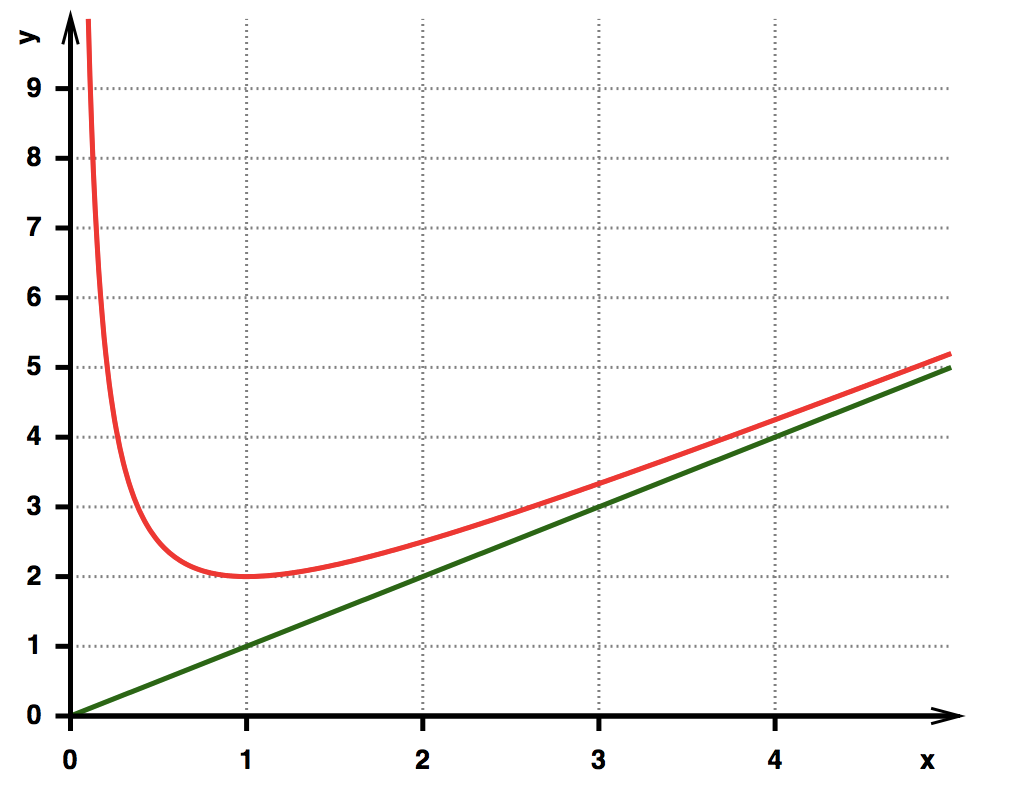
Remember when you promised to do something but didn’t see its completion?
You were incredibly resolved to do it, only to find out that your motivation has evaporated by the next day.
You are determined to improve on writing but photography looks interesting. Oh, not to mention that learning a new language seems a more reasonable decision.
How do you get out from the habit of chasing and not finishing?
How do you achieve results that lead you closer to your goals?
How would you level up against most people from the crowd?
There are so many options that compete for your attention. Choosing which to attend is overwhelming.
What if you choose the wrong activity? What if you waste time learning it?
Be Courageous When Others Are Fearful
“Every time we choose courage, we make everyone around us a little better and the world a little braver.” — Brené Brown
It is frightening to try things we are unsure of. There are no guarantees of success. It can be easy to worry about the results.
Maybe we should just stay safe, go with the flow and see where life takes us?
Most people have a habit of jumping from one thing to another, never quite getting anything accomplished. They get overwhelmed by so many options that they end up not producing something they can be proud of.
With a few changes on your priorities, you can rise above the noise by doing what most people don’t want to do.
It can put you in a spot where your opinion and advice matter. It can help you stand out in a positive way not just for your benefits but for others as well.
Three Principles You Can Adapt to Rise Above the Noise
Here’s how you can stand out from the rest of the crowd in whatever area you are right now:
Key Principle #1: FOCUS
“The top athletes are consummate pros who work obsessively at their craft. Approach yours the same way.” — Tom Peters
The results you have right now are the fruits of your labor yesterday.
If you’re not happy, stop loathing about why it didn’t work out. Instead, focus on what you can change today to get to the point you want.
Do you purposely devote time to activities that will yield the results you want?
Did your actions yesterday lead you closer to it?Or did something rob your attention because it looks interesting? more appealing?
Do you wonder why you don’t get desired results when you have the intention to do things right?
Your activities reflect the things you prioritize.
If you want to see a real difference,you have to make a decision to act.
As Barbara Corcoran, a real-estate mogul, has said:
“Indecision is poison. Even when you make the wrong decision, you’re at least moving and have the chance of stumbling into something great!.”
In this fast-changing world, most people upgrade gadgets and tools even though they are still working. They switch things up even if they have not yet mastered them. They fall into the trap of subscribing to every interest. They fail to develop that one quality to master anything.
You’ll get far more return on your investment by maximizing what you already have instead of constantly replacing it.
It is possible if you have the necessary FOCUS.
When you develop it, you increase the chance of mastering a skill. You don’t simply juggle different things at the same time and getting half-baked results.
Putting the right attention is very important, as Daniel Goleman has said in his book Focus:
“It’s not the chatter of people around us that is the most powerful distractor, but rather the chatter of our own minds.”
When we overwhelm our brain, we divide our focus which translates to our performance. Goleman said that we learn best with focused attention. When you focus, your brain restructures and ingrains patterns as you develop the skill.
Many people focus on trivial things that occupy their day. That is all well-and-good if your chief aim is entertainment. But if you are after your growth, you have to decide what to focus on.
This is not to ignore the everyday activity that is required of you. You can’t ignore your roles being a partner, a parent, a child or employee.
It’s about sticking on one thing related to your growth and commit yourself to improve it. If you try everything at once, you’ll quickly burn out and quit.
Focus on just one thing, and try to succeed at that.

Goleman also talks about “open-awareness”as a mental platform for unexpected insights. Let your mind wander and ponder on random things like your favorite memories, scenarios of the future, or mull about life.
In short, give your brain circuits a break from intensive focusing. Many creative breakthroughs happen during this open-awareness time. He suggests switching to a keen focus when that great creative insight hits you.
Right now, it can be frightening to focus on one thing. But you have to jump on that risk for you to move.
No one is guaranteed tomorrow.
Each time spent on something is the time you can never replace. If you choose to devote it to something that allows you to grow, you benefit from it. The results may not be obvious right away but the discipline from doing it will reflect in due time.
It takes some testing before you find what you truly want. You will only know when you stay long enough to do the task.
If you want real results, you have to be willing to set aside time for it. Not when you have extra time. Not when you feel like doing it. Not when you’re in the zone.
But a time that is mapped out in your calendar whether you like doing it or not. It is for your growth.
Resist the temptation of jumping from one thing to another. You limit your success when you don’t fully commit to your goal. When you decide to start something, be willing to finish it.
Lack of focus is like a little empty room. When you see things on sale or clearance, you get excited. Because prices are low, you buy until you slowly filled in the room.
When someone complains about the mess, you start sorting it out. You then realize that most of what you bought is not essential. In fact, you don’t even use most of them. Then, you regret buying. You lost money and time in stockpiling unnecessary things.
Do you hoard activities?
Do you look back at the time you wasted and regret not making wise use of it?
A young boy is a great example of deliberate focus:
A young farmer boy developed his interest in machines when he saw a road engine out of Detroit when he was 12 years old. He attempted to build a watch to sell but figured out it is not a universal necessity. He found out people were more interested in something that would travel on the road, so he decided to work on car engines.
He focused on it for years, read different publications and studied the concept carefully. After 12 years, he completed his first motor car that ran to his satisfaction which is the Model T. That focus gave Henry Ford his name in history.
He said:
“No work with interest is ever hard. Results would always come if you work hard enough.”
If you are seeking great results, you will do whatever it takes to get them. You’ll filter the activities that do not contribute to your growth, devote time for the skill and seek the right people to help you.
If you don’t, you will settle with what you have. You’ll be surprised how fast you can master that skill when you apply quality focus seriously.
Key Principle #2: MASTERY
“It is in fact the height of selfishness to merely consume what others create and to retreat into a shell of limited goals and immediate pleasures.” — Robert Greene
Rising above the noise requires a great deal of knowledge and wisdom about your art.
Every day is a decision to continuously improve. It’s either you let your skill stay on its level or find ways to increase what you already know.
Most people are overwhelmed by distractions.
They are glued to their phones so much that they panic when they are separated from it. They read books but rarely apply its principles. Their habits rewire their brains on becoming addicted to distractions.
To stand out from the crowd, you must increase your efforts to master your art.
This is where the door of opportunity starts to open. Learn how to synthesize abstract information into something useful and relatable to your audience. Synthesis isn’t possible if you don’t know the basic facts.
Mastery takes a lot of time and deliberate practice. Not many people can sustain that motivation and patience to stick to the training.
That’s where you come in.
No one wants to catch a bouquet of roses full of thorns, but they are willing to marvel on its beauty. You become the best in your field when you let commitment be your partner.
Daniel Pink, the author of Drive, defines Mastery as the urge to get better and betterat something that matters.
He describes the Three Laws of Mastery:
1. Mastery is a Pain
It takes a lot of hard work and effort to get to where you want to go. Pink says it is easier to master something that matters to you.
Being in a state of “Flow” helps a lot to improve mastery.
It is when challenges match with your abilities that you lose track of time when you do them. The Flow may happen in one moment but mastery may unfold over time.
2. Mastery is a Mindset
He draws this principle from Carol Dweck’swork. In her book Mindset: The New Psychology of Success, she concludes that humans have two basic approaches to life.
A fixed mindset views intelligence and talent as preset and finite. A fixed mindset prevents people from developing the resources they have.
In contrast, when people have a growth mindset, they view intelligence and talent as something they can increase. They can learn new ideas, develop new skills, and benefit from watching others who are successful. They aren’t stuck.
3. Mastery is an Asymptote
An asymptote is a straight line that a curve approaches but never quite reaches.

Pink says that Mastery isn’t something you achieve 100%. It means you continuously aim to become better because no one knows what the peak of mastery is.
He said:
“Why reach for something you can never fully attain? But it’s also a source of allure. Why not reach for it? The joy is in the pursuit more than the realization. In the end, mastery attracts precisely because mastery eludes.”
After all, the more you learn, the more you will be humbled by how little you know, and have yet to learn.
If you want to learn something, go for it. If you want to become really good at it, go for it further. If you want to master it, keep going and going and going.
Because mastery doesn’t have a particular stopping point. Seeking for improvement is crucial in any mastery.
Randy Komisar, a venture capitalist, has said:
“When all is said and done, the journey is the reward. Reaching the end, is well, the end. If the egg must fall three feet without a crack, simply extend the trip to four.”
When you put in the work to master your art, you gain the respect of others. When you keep stretching the mile you run, you improve your stamina. As you try to gain mastery, allow yourself some time to recuperate to help you run the race again.
Stephen King, a renowned writer, exemplifies mastery of his craft well:
Stephen King pursued writing because he fell in love with it since he was a young boy. He made a decision to improve on it whatever circumstance he had. When he starts on a project, he does not slow down or stop unless needed.
He collected rejection slips to fuel him to work more. He loves writing and gave himself no other option but to learn the craft and be very, very good at it. After writing his first draft, he takes a break as a preparation for the next phase. He said:
“Talent is cheaper than table salt. What separates the talented individual from the successful one is a lot of hard work.”
Most people only tackle the easy things.
They rely on an instant formula to transform their performance. They do not challenge themselves to learn their craft. And so, they hardly develop new ideas.


No comments:
Post a Comment
What Do You Think?
You can comment as anonymous, or other options
Note: Only a member of this blog may post a comment.